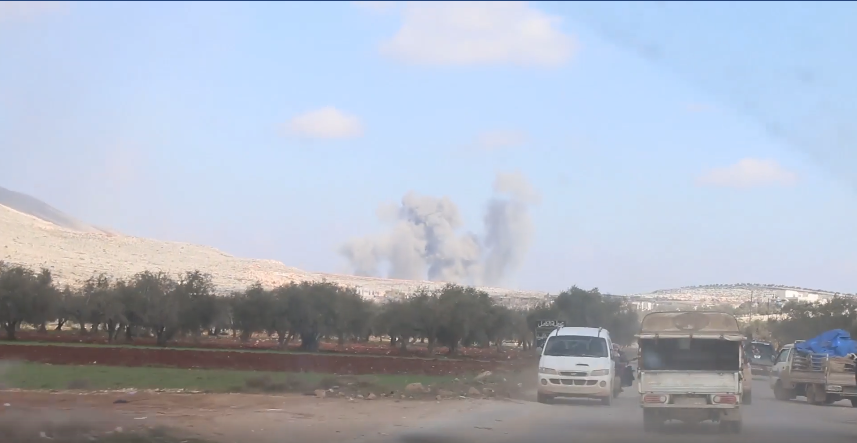Syrian food and vaccines at risk as Russia uses UN veto to scupper aid plan (The Guardian)
“The UN cross-border aid delivery mechanism, set up in 2014 and renewed ever since, is due to expire on Friday, and talks are under way to see what Russia, which backs the Assad regime, will tolerate.
Moscow’s representatives on the security council objected to any more than a six-month renewal, and would agree to just one crossing. Twelve months ago there had been four.”
Behind a chemical attack in Syria, a lingering battle over blame (Undark)
“Most experts blame the 2017 attack on the Syrian regime. But an emeritus MIT professor remains stubbornly unconvinced.”
Life after the caliphate: Human security challenges in Syria and Iraq (Konrad Adenauer Stiftung)
“The international community’s attention can be fickle. The combination of competing priorities, limited financial and political capital, and multiple parallel protracted political crises, conflicts and humanitarian emergencies mean that maintaining focus and long-term commitment is often a challenge. This is especially the case when a ‘day after narrative’ begins to develop, at times irrespective of the reality of the ground.”
Denmark is setting a dangerous precedent which must be reversed (Syrian Association for Syrians’ Dignity)
“The decision issued this week by the Denmark’s Refugee Appeals Board, which confirms earlier decision by the Danish Immigration Service to deny asylum to three Syrian women from Damascus, claiming that “there is no reason to assume that everyone will be at real risk of being assaulted”, sets a dangerous precedent and needs to be repealed. The decision ignores the reality in Damascus and other areas under control of the Syrian regime, which is far from being anywhere close to conducive to return of refugees.”
Picking empty pockets (Synaps)
“Syria’s economy is held together by Syrians themselves, via a global network of remittances that responds to needs in ways that top-down support mechanisms cannot. Yet, this lifeline is fraying at a time when the country needs it most, in the face of accelerating inflation and deepening poverty.”
Brussels conference highlights tensions between Syria’s growing needs and political stalemate (Middle East Institute)
“The fourth Brussels Conference on Supporting the Future of Syria and the Region concluded last week with a drop in donations for 2020 for those affected by the decade-long war, a result which is disappointing but not surprising. COVID-19's impact on the domestic finances of major donors was expected to affect their foreign donations, particularly when combined with donor fatigue after a decade of war and crisis.”






